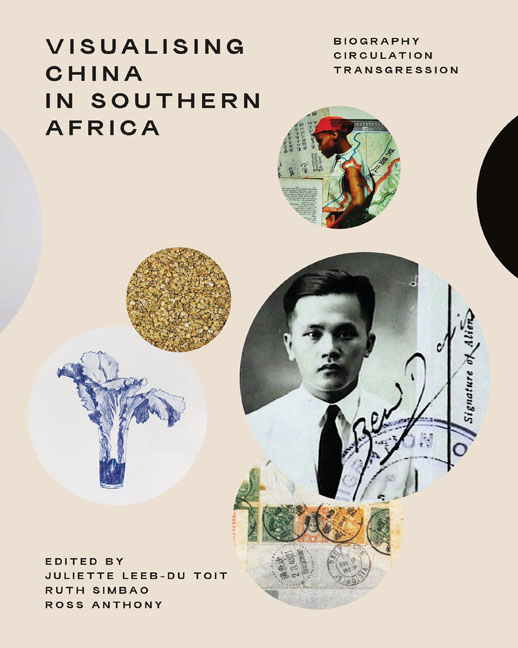11 - Postcard Representations of Indentured Chinese Labourers in South Africa’s Reconstruction, 1904–1910
Published online by Cambridge University Press: 24 November 2023
Summary
South Africa's history of importing indentured Chinese labourers to work in the gold mining industry in the Witwatersrand (Rand) region of the Transvaal Colony following the South African War (also known as the Anglo-Boer War) (1899–1902) is well documented in the country's national archives, libraries and museums. In the 1970s and 1980s, Marxist scholars of South African history also acknowledged these labourers’ contribution to the sector during the post-war reconstruction period (Callinicos 1980; Davies 1976; Richardson 1982; Van Onselen 1982a, 1982b). That the Chinese labourers could have had any sociocultural influence in the colony during this period was left unexamined, in spite of the wealth of materials in the above-mentioned repositories. Relying on those materials (for example, visual images, political pamphlets, newspaper articles, colonial correspondence, minutes of meetings and legislation), this chapter addresses that lacuna by showing how the recruitment and arrival of the indentured Chinese labourers contributed towards a ‘sharpen[ing] of racial sensibilities’ (Guterl 2003, 217), particularly what it meant to be white in the colony and to be a member of the British Empire. To demonstrate the developing racial sensibilities, this chapter analyses the iconography of indentured Chinese labour in Real Photo Postcards (RPPCs), which offer a glimpse into the ways in which local printing companies, photographers and consumers represented and viewed the debate focused on these labourers. It argues that the postcard representations of the Chinese labourers not only ostensibly normalised exploitative practices of the gold mining industry on the Rand, but also took the side of the British mining capitalists, colonial administrators and church ministers in the debate. While these parties asserted that importing labourers from China would uplift the Chinese race and benefit white labourers, their opponents who included abolitionists and members of mining unions, equated the indentured labour system with Chinese slavery.
SEEING AND CONNECTING THROUGH POSTCARDS
The companies that printed the postcards of the indentured Chinese labourers on the Rand were Braune & Levy and the South African Photo & Stereo Company (SAPSCo) in Johannesburg, Frank A Stauber in Jeppestown, Hallis & Co. in Port Elizabeth, and Sallo Epstein & Co. in Durban.
- Type
- Chapter
- Information
- Visualising China in Southern AfricaBiography, Circulation, Transgression, pp. 230 - 245Publisher: Wits University PressPrint publication year: 2023



